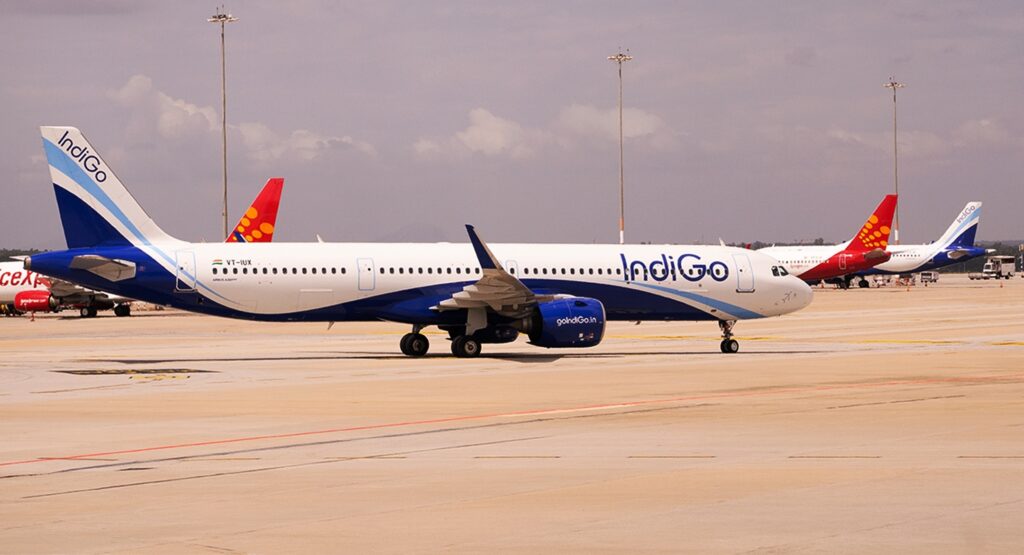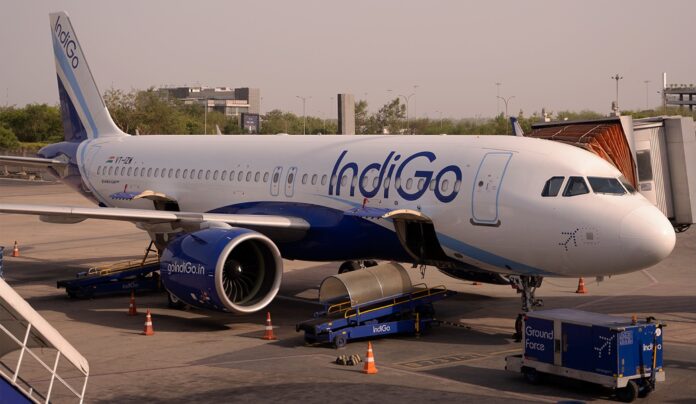As we know that the #IndiGo is the India’s largest airline.
Indigo Will be adding a fuel charge to its domestic and international flight fares starting from October 6. This decision is in response to the recent increase in aviation turbine fuel (ATF) prices, For journeys up to 500 kilometers, the charge will begin at Rs. 300 and will increase to Rs. 1,000 for distances over 350 kilometers.
Typically, ATF contributes to 40% of the total ticket price. This move comes after a significant rise in ATF prices over the last three months, with monthly price hikes.
Since July 1, ATF prices have surged by 30%, going from Rs.90,85/kl to Rs.118,199/kl as of October 1, according to Indian Oil data. This increase coincides with the end of the monsoon season and the start of the festive season, which is traditionally one of the busiest travel periods of the year.

IndiGo, with a fleet of over 320 aircraft, operates more than 1,900 daily flights, connecting 81 domestic destinations and 32 international ones. As of the end of August, the Indigo airline held a 60% share of the domestic market and had carried nearly 60 million passengers, according to data from the Directorate General of Civil Aviation (DGCA).
More about Aviation Turbine Fuel (ATF).
Aviation Turbine Fuel (ATF), also known as Jet Fuel, is a specialized type of fuel used to power aircraft, including airplanes and helicopters. It is a high-quality, refined petroleum product specifically designed to meet the stringent requirements of aviation safety and performance.

Here are some key points about ATF:
- Composition: ATF is typically derived from crude oil through a refining process. It is a type of kerosene and is different from the gasoline or diesel fuels used in automobiles. The refining process involves removing impurities and ensuring that the fuel has the necessary properties to perform in aviation engines.
- Grades: There are two primary grades of ATF used in aviation:
- Jet A: This is the most common type of ATF used globally. It has a relatively high freezing point, making it suitable for use in commercial airliners. Jet A is used in most parts of the world, including the United States.
- Jet A-1: Jet A-1 is similar to Jet A but has a lower freezing point. It is commonly used in regions with colder climates. Jet A-1 is the standard jet fuel in Europe and many other parts of the world.
- Properties: ATF needs to meet strict specifications to ensure the safety and efficiency of aircraft engines. Some of the important properties include high energy content, low volatility, low freezing point, and high thermal stability. These properties are critical for maintaining engine performance and safety at high altitudes and low temperatures.
- Additives: To enhance the performance of ATF, various additives may be included. These additives can improve lubricity, reduce icing, and prevent corrosion within the aircraft’s fuel system.
- Storage and Handling: ATF is typically stored in special tanks at airports and transported to aircraft using dedicated fuel trucks. It must be handled with care to prevent contamination or water absorption, as even small impurities can cause engine problems.
- Price Volatility: The price of ATF is subject to significant fluctuations, often driven by changes in the global oil market. Airlines are particularly sensitive to these price changes because fuel costs can represent a significant portion of their operating expenses.
- Environmental Impact: Like other fossil fuels, the combustion of ATF produces greenhouse gas emissions, contributing to climate change. Efforts are ongoing to develop and implement more sustainable aviation fuels (SAF) made from renewable sources, which could reduce the environmental impact of aviation.
In summary, Aviation Turbine Fuel (ATF) is a specialized type of kerosene-based fuel designed for aviation use. It plays a crucial role in the safe and efficient operation of aircraft, and its price and availability can have a significant impact on the airline industry’s economics.






